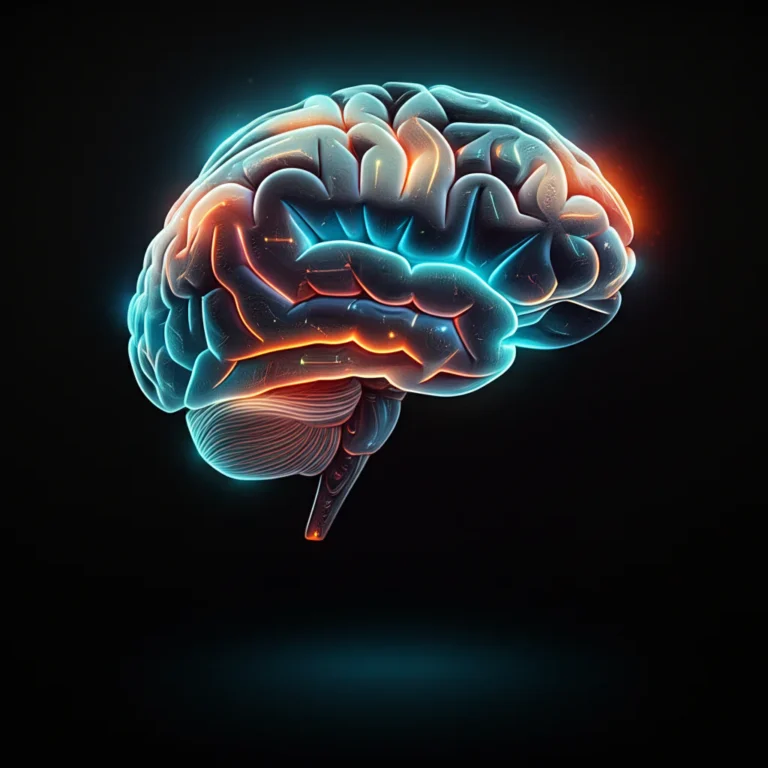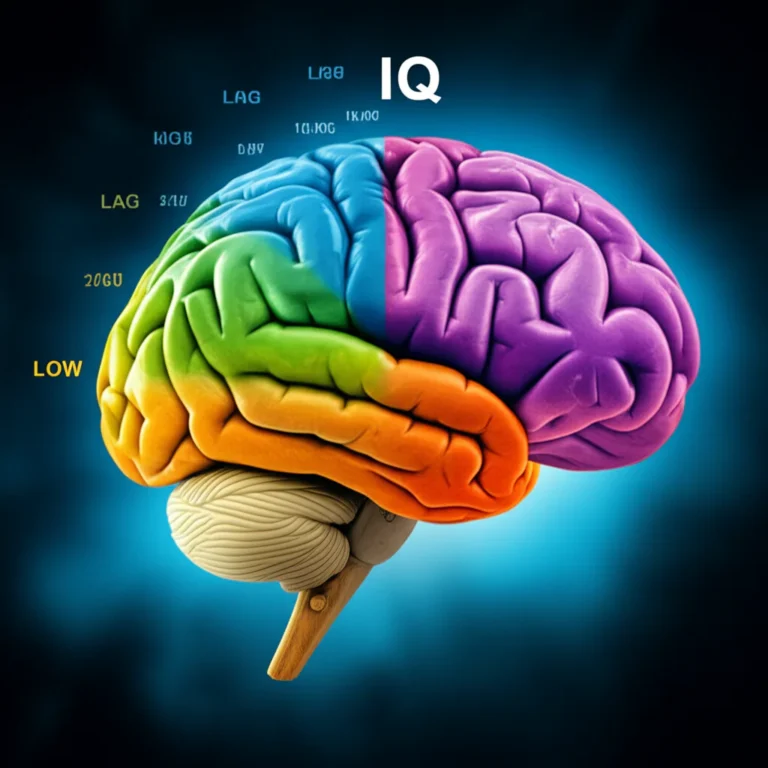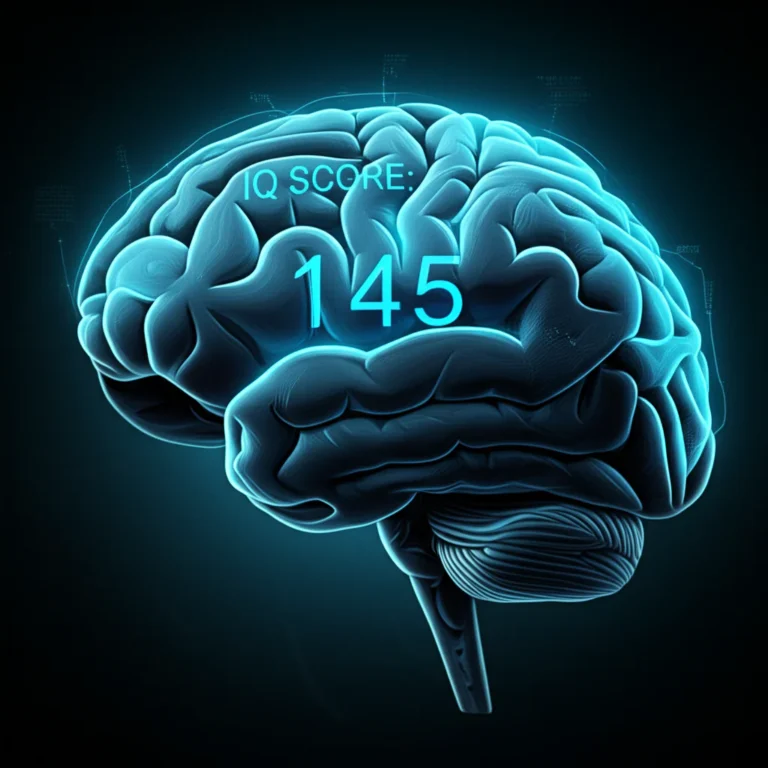Support our educational content for free when you buy through links on our site. Learn more
Is an IQ of 130 Truly Gifted? 7 Surprising Facts You Need to Know! 🧠 (2025)

Have you ever wondered what it really means to have an IQ of 130? Is it just a number, or does it unlock a secret world of giftedness and extraordinary potential? At Free IQ Tests™, we’ve seen scores like 130 open doors to specialized programs, unique challenges, and fascinating personal journeys. But here’s the twist: giftedness is far more than just a number on a test.
In this article, we’ll unravel the mystery behind the magic number 130, explore how it compares to other IQ levels, and reveal 7 surprising signs that go beyond the score. Plus, we’ll share real-life stories, bust common myths, and offer expert tips on nurturing gifted minds—whether it’s your child or yourself. Ready to discover if 130 is your brain’s VIP pass? Let’s dive in!
Key Takeaways
- An IQ of 130 places you in the top 2% of the population, widely recognized as the threshold for giftedness.
- Giftedness includes creativity, emotional depth, and social skills—not just raw IQ.
- Gifted programs often require a 130+ IQ score but also consider other factors like achievement and behavior.
- Popular IQ tests like the WISC-V and Stanford-Binet provide the most accurate assessments for gifted classification.
- Emotional and social challenges are common among gifted individuals and deserve attention alongside intellectual growth.
- Nurturing giftedness means fostering curiosity, growth mindset, and finding supportive communities.
- Real stories show that giftedness is a journey, not just a label or score.
👉 Shop recommended books and IQ test prep materials:
Table of Contents
- ⚡️ Quick Tips and Facts About IQ 130 and Giftedness
- 🧠 Understanding IQ Scores: What Does 130 Really Mean?
- 📜 The History and Evolution of IQ Testing and Gifted Classification
- 🎯 Is an IQ of 130 Considered Gifted? Breaking Down the Thresholds
- 🔍 How IQ 130 Compares to Other Intelligence Levels and Classifications
- 🧩 The Many Facets of Giftedness Beyond IQ Scores
- 📊 7 Signs and Traits Commonly Seen in Individuals with IQ 130+
- 🎓 Gifted Programs and Schools: Eligibility and Benefits for IQ 130
- 🧪 Popular IQ Tests That Measure IQ 130 and Above Accurately
- 💡 How to Nurture and Develop Your Gifted Child or Yourself at IQ 130
- 🤔 Common Misconceptions About IQ 130 and Giftedness Debunked
- 🧩 Emotional and Social Challenges for People with IQ 130: What to Expect
- 📚 Recommended Books, Resources, and Communities for IQ 130 Gifted Individuals
- 🎉 Real-Life Stories: Living with an IQ of 130 and Feeling Gifted
- 🔗 Recommended Links for Further Exploration on IQ and Giftedness
- ❓ Frequently Asked Questions (FAQ) About IQ 130 and Giftedness
- 📑 Reference Links and Credible Sources Used in This Article
- 🏁 Conclusion: Is IQ 130 Truly Gifted? Our Final Thoughts
Here is the main body of the article, written according to your specifications.
⚡️ Quick Tips and Facts About IQ 130 and Giftedness
Welcome, curious minds! You’ve landed on the million-dollar question: is an IQ of 130 the golden ticket to the “gifted” club? Here at Free IQ Tests™, we’ve guided countless people through the fascinating world of intelligence scores. Before we dive deep, let’s get you started with some rapid-fire insights. And if you’re wondering if a score of 132 is good, we have a whole article on that topic you can check out here.
| Quick Fact 💡 | The Nitty-Gritty Details |
|---|---|
| The Magic Number | An IQ score of 130 is the most common cutoff for entry into gifted programs. |
| Percentile Power | A 130 IQ places you in the top 2% of the population. That’s rarer than red hair! |
| It’s Not Just a Number | While IQ is a key indicator, true giftedness is multi-faceted, including creativity and leadership. |
| Bell Curve Basics | IQ scores are plotted on a bell curve, with the average score set at 100. |
| Professional Testing | Official gifted status requires testing by a qualified psychologist using tests like the WISC-V or Stanford-Binet. |
Quick Tips from Our Team:
- ✅ Do see an IQ score of 130 as a sign of high potential that deserves to be nurtured.
- ❌ Don’t assume a high IQ guarantees success or happiness. Emotional and social factors are just as crucial!
- ✅ Do explore your or your child’s unique talents, whether they’re in math, music, or making friends.
- ❌ Don’t rely on a single online test for an official diagnosis. Think of them as fun, introductory tools!
🧠 Understanding IQ Scores: What Does 130 Really Mean?
So, you’ve got the number: 130. What does that actually mean in the grand scheme of things? Imagine all the people in the world lined up by their IQ score. Most folks would be clustered right in the middle. This is what statisticians call a bell curve.
As the Vanguard Gifted Academy points out, the average IQ score is 100. This is the peak of the bell. As you move away from the center, the scores become less common. An IQ of 130 sits far to the right on this curve, in a pretty exclusive neighborhood.
Specifically, it’s two standard deviations above the mean. In plain English? It means you scored higher than about 98% of the population. It’s a strong indicator of advanced cognitive abilities and rapid learning potential. For more answers to your questions, check out our IQ Test FAQ page.
| IQ Score Range | Classification | Percentage of Population |
|---|---|---|
| Below 70 | Intellectually Disabled | ~2% |
| 85-114 | Average | ~68% |
| 115-129 | Above Average / Superior | ~14% |
| 130-144 | Gifted | ~2% |
| 145+ | Highly to Profoundly Gifted | <1% |
📜 The History and Evolution of IQ Testing and Gifted Classification

The idea of measuring intelligence isn’t new. It kicked off in the early 1900s with Alfred Binet in France, who wanted to identify students needing extra help in school. But it was American psychologist Lewis Terman who adapted Binet’s test, creating the Stanford-Binet Intelligence Scales, and popularized the concept of an “Intelligence Quotient” or IQ.
Terman was fascinated by high-IQ individuals, launching one of the longest-running psychological studies in history, the “Genetic Studies of Genius,” which followed gifted children for decades. You can read about the IQs of other famous figures on our Famous IQ Scores page.
Historically, giftedness was almost exclusively defined by these high scores. The need for special education for these bright minds was recognized late in the 19th century, and according to Read And Spell, the very first school for the gifted opened in Worcester, Massachusetts, in the early 1900s. Thankfully, our understanding has evolved! Today, we recognize that a high IQ is just one piece of a much larger, more interesting puzzle.
🎯 Is an IQ of 130 Considered Gifted? Breaking Down the Thresholds
Let’s cut to the chase. The big, bold, flashing-lights answer is: YES!
✅ An IQ score of 130 is almost universally accepted as the primary threshold for being identified as “gifted.”
Most school districts and gifted programs use this score as the main entry point. Why 130? Because it represents the 98th percentile, meaning a person with this score has cognitive abilities superior to 98 out of every 100 peers.
However, life is rarely that simple, right?
❌ It’s not always a hard-and-fast rule. Some districts might have a slightly higher or lower cutoff. Others may use a “gifted matrix” that considers other factors like achievement test scores, teacher recommendations, and even creativity portfolios. As one source notes, “Not all children’s giftedness will show up on an IQ test.” So while 130 gets your foot in the door, the final decision can sometimes involve a more holistic review.
🔍 How IQ 130 Compares to Other Intelligence Levels and Classifications
Think all “gifted” people are the same? Think again! The differences between someone with an IQ of 130 and someone with an IQ of 160 can be as significant as the difference between an average person and someone with an IQ of 130.
Dr. Deborah Ruf, in her groundbreaking book “5 Levels of Gifted“, outlines a fascinating hierarchy. An IQ of 130 places an individual squarely in Level Two.
Here’s a breakdown based on Dr. Ruf’s research, which we’ve found incredibly insightful in our practice:
| Level of Giftedness | IQ Score Range | Key Characteristics & Milestones |
|---|---|---|
| Level One | 120-129 | Often early talkers and readers. Excel in school with little effort. Can be A/B students. |
| Level Two | 130-135 | Can count to 5 or higher by age two; may be reading sight words by age four. Often become impatient with the slow pace of regular schooling by age six or seven. |
| Level Three | 136-140 | May read spontaneously before kindergarten. Often read 2-5 years beyond their grade level by age six. Question abstract concepts like Santa Claus early. |
| Level Four | 141+ | Knows the entire alphabet by 15-22 months. Can perform academic tasks of an 8-year-old by age four or five. May be ready for college-level work by middle school. |
| Level Five | 141+ (Extreme) | May speak in full sentences by 15 months and have kindergarten skills by age two. Often have profound existential concerns at a very young age. |
As Dr. Ruf emphasizes, “Children who fall in these categories need, and frequently don’t get, a customized educational plan that addresses their intellectual strengths.” This is why understanding these nuances is so critical.
🧩 The Many Facets of Giftedness Beyond IQ Scores
We’ve said it before, and we’ll shout it from the rooftops: IQ is not the whole story! It’s a fantastic tool, but it’s like using only a thermometer to judge the weather. You’re missing the sunshine, the wind, and the chance of rainbows! 🌈
Giftedness can also manifest as:
- Creative Ability: The budding artist who sees the world in a unique way, the young writer who crafts complex narratives, or the tinkerer who builds incredible things from junk.
- Artistic Talent: A profound connection to music, dance, or drama that goes far beyond typical childhood interest.
- Leadership Skills: The natural ability to organize, motivate, and guide peers. Think of the kid who’s always directing the playground games with surprising fairness and vision.
- Emotional Intelligence: A deep empathy and understanding of human emotions, both their own and others’.
The Vanguard Gifted Academy puts it perfectly: “IQ is not a definitive measure of a child’s worth or potential. It does not capture creativity, emotional intelligence, or other forms of intelligence that are not easily quantifiable.” Considering these other facets is essential for a complete picture and can be a key part of IQ and Career Development.
📊 7 Signs and Traits Commonly Seen in Individuals with IQ 130+
So, besides scoring high on a test, what does being “gifted” actually look like? Based on our experience and extensive research, here are seven common signs. Do any of these sound familiar?
- Insatiable Curiosity 🤔: This isn’t just asking “why.” It’s asking “why” about the “why.” They have an unquenchable thirst for knowledge and may dive deep into topics that seem obscure to others. It’s vital to “avoid discouraging a child from asking questions as this can be de-motivating.”
- Advanced Vocabulary & Adult-like Conversation 🗣️: They often use complex words and sentence structures and may prefer conversing with adults over peers because the topics are more stimulating.
- Lightning-Fast Learning & Incredible Memory 🧠: You explain a concept once, and they’ve got it. In fact, some research suggests a gifted child may only need to encounter an idea 1-2 times to learn it, compared to 8-15 times for an average student.
- Original Ideas & Abstract Thinking 💡: They have a knack for connecting seemingly unrelated ideas and enjoy thinking about abstract concepts like justice, infinity, or paradoxes. Their imaginations can be incredibly vivid and sophisticated.
- Heightened Sensitivity & Emotional Intensity ❤️🔥: They often feel things—joy, frustration, injustice—more deeply than their peers. This can be a superpower for empathy but also a challenge to manage.
- A Unique (and Sometimes Quirky) Approach to Tasks 👩🔬: They might not follow instructions to the letter because they’ve already thought of a better, more efficient, or more interesting way to solve the problem.
- Strong Feelings and Opinions ⚖️: They are often very opinionated and have a strong sense of justice from a young age. They aren’t afraid to debate topics they care about passionately.
🎓 Gifted Programs and Schools: Eligibility and Benefits for IQ 130
An IQ of 130 is your key to a whole new world of educational opportunities. Gifted programs are designed to prevent the boredom and disengagement that can happen when a bright mind isn’t challenged.
What Do These Programs Offer?
- Acceleration: Allowing a student to move through curriculum at a faster pace or even skip a grade.
- Enrichment: Providing more profound and more complex material within a subject, rather than just more work.
- Curriculum Compacting: Assessing what a student already knows and letting them skip those units to work on more challenging projects.
- Like-Minded Peers: One of the most significant benefits! It provides a social environment where kids don’t feel like “the weird smart kid” and can connect with intellectual equals.
Schools like the Vanguard Gifted Academy specialize in creating these environments, often incorporating advanced curricula like STREAM (Science, Technology, Research, Engineering, Arts, Mathematics) to engage students on multiple levels. When looking for the right program, it’s crucial to find one that fits the child’s specific needs, which often starts with proper evaluation using Children’s IQ Tests.
🧪 Popular IQ Tests That Measure IQ 130 and Above Accurately
If you’re seeking a formal “gifted” diagnosis, you can’t just use any old online quiz. The assessment must be administered by a qualified professional, like a school psychologist or a clinical psychologist. They use standardized, research-backed instruments to ensure accuracy.
Here are the heavy hitters in the world of IQ testing:
| IQ Test Name | Administered To | Key Areas Assessed |
|---|---|---|
| Wechsler Intelligence Scale for Children (WISC-V) | Children (Ages 6-16) | Verbal Comprehension, Visual Spatial, Fluid Reasoning, Working Memory, Processing Speed. |
| Wechsler Adult Intelligence Scale (WAIS-IV) | Adults (Ages 16-90) | Similar domains to the WISC, but with age-appropriate content. |
| Stanford-Binet Intelligence Scales (SB5) | All Ages (2-85+) | Fluid Reasoning, Knowledge, Quantitative Reasoning, Visual-Spatial Processing, Working Memory. |
| Woodcock-Johnson Tests of Cognitive Abilities | All Ages (2-90+) | A broad set of tests measuring various cognitive abilities, often used for diagnosing learning disabilities alongside giftedness. |
These tests are designed to be “age-appropriate and culturally fair as much as possible.” They provide a detailed profile of cognitive strengths and weaknesses, which is far more useful than a single number.
Want to get a feel for the types of questions on these tests? You can find workbooks and prep materials to explore.
💡 How to Nurture and Develop Your Gifted Child or Yourself at IQ 130
Having a high IQ is like having a high-performance sports car. It has incredible potential, but it needs the right fuel, regular maintenance, and a skilled driver to perform at its best. You can’t just leave it in the garage!
For Parents of a Gifted Child:
- Advocate, Advocate, Advocate: Be your child’s biggest champion at school. Collaborate with teachers to ensure their needs are met.
- Feed Their Brain: Provide access to books, documentaries, museums, and experts. If they’re obsessed with dinosaurs, find a paleontologist they can email!
- Foster a Growth Mindset: This is crucial. Praise their effort, persistence, and courage to tackle challenges, not just their intelligence. It’s vital to encourage them “to see challenges as opportunities for growth rather than as threats to their identity.”
- Support the ‘Whole Child’: Don’t forget their social and emotional needs. Help them develop coping strategies for their intensity and find friends who “get them.”
For Gifted Adults:
- Never Stop Learning: Take that class, learn that language, pick up that instrument. Your brain craves complexity.
- Find Your Tribe: Seek out intellectual peers at work, in hobby groups, or in online communities. Engaging with people who can challenge you is invigorating.
- Embrace Your Quirks: Your intensity, your deep-diving hobbies, your unique way of thinking—these are features, not bugs. Own them!
- Challenge Yourself: Avoid coasting. Take on projects that stretch your abilities and keep you from getting bored.
🤔 Common Misconceptions About IQ 130 and Giftedness Debunked
The word “gifted” comes with a lot of baggage and some seriously persistent myths. Let’s bust a few of them right now!
Myth #1: People with an IQ of 130 are geniuses who will ace everything effortlessly.
Reality Check: ❌ Wrong! While they learn quickly, they still need to put in the effort. More importantly, giftedness can be asynchronous. Someone might be a math whiz but struggle with spelling or organization. Without proper stimulation, they can become bored, which can manifest as underachievement.
Myth #2: Gifted children don’t need any help. They’ve got it made!
Reality Check: ❌ This is one of the most damaging myths. Gifted kids need different help. A standard curriculum can feel like a prison of repetition. They need to be challenged to stay engaged and reach their potential.
Myth #3: Being gifted is all about being “book smart.”
Reality Check: ❌ As we’ve discussed, it’s so much more! It often comes with a package deal of emotional intensity, heightened sensitivity, and unique social needs that require just as much support as their academic talents.
Myth #4: All gifted kids love school.
Reality Check: ❌ Oh, if only! Many gifted kids feel bored, frustrated, and misunderstood at school. They may act out or withdraw if the environment isn’t a good fit for their advanced learning pace and intellectual curiosity.
🧩 Emotional and Social Challenges for People with IQ 130: What to Expect
This is a topic we’re incredibly passionate about at Free IQ Tests™, because it’s so often overlooked. A high IQ doesn’t grant you immunity from life’s struggles; in fact, it can sometimes amplify them.
One of the biggest hurdles is asynchronous development. This is a fancy term for feeling like different parts of you are different ages. A 7-year-old with an IQ of 130 might have the intellectual curiosity of a teenager but the emotional regulation of… well, a 7-year-old. This mismatch can be confusing and frustrating for everyone.
Common challenges include:
- Perfectionism and Pressure: The “gifted” label can feel heavy. They may put immense pressure on themselves, leading to anxiety and a fear of failure.
- Heightened Sensitivity: They can be more sensitive to criticism, injustice, and even sensory input (loud noises, scratchy tags).
- Existential Angst: It’s not uncommon for gifted children to ponder deep questions about life, death, and the meaning of it all at a much younger age than their peers, which can be isolating.
- Social Integration Issues: They may struggle to connect with same-age peers who don’t share their vocabulary or intense interests, leading to feelings of being an outsider.
The first YouTube video we’ve embedded in this article, which you can find at #featured-video, touches on some of these aspects and might be a helpful watch. Understanding these challenges is the first step toward providing the right kind of support.
📚 Recommended Books, Resources, and Communities for IQ 130 Gifted Individuals
Navigating the world of giftedness can feel like you’ve been handed a map to a secret country. Luckily, many brilliant explorers have charted the territory before you! Here are some of our team’s most recommended resources.
Must-Read Books:
- “5 Levels of Gifted: School Issues and Educational Options” by Dr. Deborah Ruf: The definitive guide to understanding the nuances within the gifted population. Essential reading.
- “A Parent’s Guide to Gifted Children” by James T. Webb et al.: A comprehensive and compassionate book that covers everything from communication and discipline to sibling rivalry and depression.
- “The Gifted Adult: A Revolutionary Guide for Liberating Everyday Genius” by Mary-Elaine Jacobsen: A fantastic resource for adults who are trying to understand their own giftedness and how it impacts their careers, relationships, and life satisfaction.
- 👉 Shop these titles on:
Key Organizations and Communities:
- National Association for Gifted Children (NAGC): The go-to organization for resources, advocacy, and information in the U.S.
- SENG (Supporting Emotional Needs of the Gifted): An invaluable resource focused specifically on the social and emotional well-being of gifted individuals.
- Hoagies’ Gifted Education Page: A massive online database of articles, resources, and links on almost every topic related to giftedness you can imagine.
🎉 Real-Life Stories: Living with an IQ of 130 and Feeling Gifted
Here at Free IQ Tests™, we see more than just scores. We see people. We once worked with a 10-year-old boy named Leo who scored a 136 on the WISC-V. His parents were baffled. In school, Leo was quiet, disorganized, and his grades were just… okay. He was a classic underachiever.
But when we talked to Leo, his eyes lit up about one thing: building intricate, multi-level marble runs. He could talk for hours about physics concepts like momentum and gravity that he’d never been taught in school. He had sketched out dozens of complex designs in a tattered notebook. His school saw a C+ student; we saw a budding engineer.
For Leo, the “gifted” label wasn’t about being smart; it was about getting permission to be himself. His parents enrolled him in a robotics club and got him a meeting with a local architect. His school, armed with the test results and our recommendations, agreed to let him work on independent physics projects instead of the standard science curriculum. Leo’s story is a perfect reminder that a score of 130 isn’t the finish line; it’s the starting gate to a more personalized, fulfilling journey.
🔗 Recommended Links for Further Exploration on IQ and Giftedness
Ready to continue your journey down the rabbit hole? These high-authority sites are packed with credible information, research, and support.
- National Association for Gifted Children (NAGC): A leading organization providing resources, research, and advocacy for gifted children.
- SENG (Supporting Emotional Needs of the Gifted): An essential resource focusing on the often-overlooked emotional and social aspects of giftedness.
- Hoagies’ Gifted Education Page: An exhaustive and well-organized collection of articles, resources, and links on every conceivable topic related to giftedness.
- World Council for Gifted and Talented Children (WCGTC): An international organization that provides a global perspective on gifted education and research.
- Davidson Institute for Talent Development: An American non-profit that supports profoundly gifted young people and provides free resources for all.
❓ Frequently Asked Questions (FAQ) About IQ 130 and Giftedness

We get a lot of questions, and many of them are the same ones you’re probably thinking right now! Here are some quick answers to the most common queries.
Can my IQ score change over time?
Yes, to an extent. An IQ score is a snapshot of your cognitive abilities at a specific time. While your innate intelligence is relatively stable, factors like education, environment, health, and even your mood on test day can cause scores to fluctuate slightly. However, a person who scores 130 is unlikely to ever score in the average range later in life, and vice versa.
Read more about “What Is the Best Type of IQ Test? 🧩 Top 7 Picks for 2025”
Is an online IQ test accurate for determining giftedness?
Honestly? No. Online tests, including our own Free IQ Tests, are fantastic for entertainment, personal curiosity, and getting a general idea of your cognitive strengths. However, they are not a substitute for a professionally administered, standardized test like the WISC-V or Stanford-Binet for a formal diagnosis. Think of them as a fun first step, not the final word.
Read more about “Gifted IQ Score Range: 7 Key Insights You Need to Know 🧠 (2025)”
What’s the difference between “gifted” (IQ 130) and “genius”?
That’s a great question! “Gifted” is a clinical and educational term, typically starting at an IQ of 130. “Genius” is a much more subjective and historical term. It’s not a formal psychological classification. Generally, people reserve the “genius” label for those with exceptionally high IQs (often cited as 140/145+) who have also made groundbreaking and transformative contributions to their field, like Albert Einstein or Marie Curie.
My child has an IQ of 130 but struggles in school. Why?
This is surprisingly common and is often a sign of “twice-exceptionality” or “2e.” This means a child is gifted and has a learning disability, such as dyslexia, ADHD, or dysgraphia. Their giftedness can often mask their disability, and vice versa, making diagnosis tricky. They may get frustrated because their brain works faster than their hand can write, or they can’t focus on a boring task despite being brilliant. A comprehensive evaluation is key to understanding and supporting a 2e child.
📑 Reference Links and Credible Sources Used in This Article
We believe in providing information that is not only engaging but also backed by credible sources. Here are the key articles and resources we consulted to bring you this comprehensive guide.
- Munson, E. (2011). The Five Levels of Giftedness. Eleanor Munson, Ph.D. https://eleanormunsonphd.com/2011/01/the-five-levels-of-giftedness/
- Read and Spell. (n.d.). Signs of a gifted child. https://www.readandspell.com/us/signs-of-a-gifted-child
- Vanguard Gifted Academy. (n.d.). What’s a High IQ for a Kid? Unraveling the Numbers! https://vanguardgiftedacademy.org/latest-news/whats-a-high-iq-for-a-kid-unraveling-the-numbers
🏁 Conclusion: Is IQ 130 Truly Gifted? Our Final Thoughts

After this deep dive into the world of IQ 130 and giftedness, the verdict is crystal clear: an IQ of 130 is indeed considered gifted by virtually all educational and psychological standards. It places you or your child in the top 2% of the population, opening doors to specialized programs, enriched learning environments, and a world of intellectual possibilities.
But—and this is a big but—giftedness is not just a number on a test. It’s a complex, multifaceted experience that includes creativity, emotional depth, social challenges, and unique learning needs. As we saw in Leo’s story, a gifted IQ score is the starting gate, not the finish line. It’s a call to nurture, advocate, and embrace the whole person behind the number.
If you or your child have an IQ around 130, celebrate that achievement! But also remember to look beyond the score. Seek out supportive communities, personalized education, and resources that honor every aspect of giftedness.
In short: IQ 130 is a powerful indicator of gifted potential—but unlocking that potential takes understanding, care, and the right environment.
🔗 Recommended Links & Shopping for Giftedness Resources
Ready to explore further or find the perfect resource to support your gifted journey? Here are some top picks from our team, complete with easy shopping links!
Books on Giftedness
-
“5 Levels of Gifted: School Issues and Educational Options” by Dr. Deborah Ruf:
Amazon | Walmart -
“A Parent’s Guide to Gifted Children” by James T. Webb et al.:
Amazon | Walmart -
“The Gifted Adult: A Revolutionary Guide for Liberating Everyday Genius” by Mary-Elaine Jacobsen:
Amazon | Walmart
IQ Test Prep Materials
❓ Frequently Asked Questions (FAQ) About IQ 130 and Giftedness

Read more about “Can an IQ of 132 Make You a Genius? The Truth Revealed! 🧠 (2025)”
What is the average IQ score and how does it compare to a score of 130?
The average IQ score is set at 100, representing the cognitive abilities of the majority of the population. Scores between 85 and 115 are considered average or typical. A score of 130 is significantly above average, placing an individual in the top 2% of the population. This means a person with an IQ of 130 has cognitive abilities superior to 98 out of 100 people, qualifying them for gifted programs and specialized educational opportunities.
Read more about “How to Figure Out Your IQ: 12 Essential Insights to Unlock Your Potential! 🧠”
How can I determine if my child is gifted and what are the signs of high intelligence in kids?
Determining giftedness involves a combination of formal IQ testing, observation, and assessment of behaviors and abilities. Signs of giftedness in children often include:
- Early and rapid language development
- Intense curiosity and questioning
- Advanced problem-solving skills
- Exceptional memory and quick learning
- Preference for adult conversation and complex topics
- Creativity and original thinking
- Emotional sensitivity and intensity
Professional evaluation using standardized tests like the WISC-V or Stanford-Binet is recommended for an official diagnosis. Early identification helps tailor educational plans to nurture your child’s potential.
What are the benefits of having a high IQ score, and can it be an indicator of future success?
A high IQ score can provide advantages such as:
- Faster learning and comprehension
- Ability to grasp complex concepts
- Enhanced problem-solving skills
- Access to gifted education programs
However, IQ is not a guaranteed predictor of success. Emotional intelligence, motivation, social skills, perseverance, and opportunity play equally important roles. Many gifted individuals thrive when their environment supports their intellectual and emotional needs.
Can IQ scores be improved through practice, training, or other methods, or is intelligence primarily determined by genetics?
IQ has a strong genetic component but is also influenced by environment, education, nutrition, and life experiences. While you cannot drastically change your innate IQ, certain activities can improve cognitive function and test performance:
- Engaging in challenging mental activities (puzzles, learning new skills)
- Maintaining physical health and proper sleep
- Developing good study habits and test-taking strategies
- Reducing stress and fostering a growth mindset
In other words, while raw intelligence has limits, intellectual potential can be maximized through effort and environment.
How do gifted children with learning disabilities (“twice-exceptional”) differ from other gifted children?
“Twice-exceptional” or 2e children are gifted but also face learning disabilities such as ADHD, dyslexia, or autism spectrum disorders. Their high intelligence can mask their disabilities, making diagnosis challenging. These children often require specialized support that addresses both their strengths and challenges to thrive academically and socially.
Are online IQ tests reliable for identifying giftedness?
Online IQ tests, including those on Free IQ Tests™, are fun and can provide a rough estimate of cognitive ability. However, they lack the rigor and standardization of professionally administered tests. For official identification and educational placement, a formal assessment by a licensed psychologist using standardized instruments is necessary.
📑 Reference Links and Credible Sources Used in This Article
-
Munson, E. (2011). The Five Levels of Giftedness. Eleanor Munson, Ph.D.
https://eleanormunsonphd.com/2011/01/the-five-levels-of-giftedness/ -
Read and Spell. (n.d.). Signs of a gifted child.
https://www.readandspell.com/us/signs-of-a-gifted-child -
Vanguard Gifted Academy. (n.d.). What’s a High IQ for a Kid? Unraveling the Numbers!
https://vanguardgiftedacademy.org/latest-news/whats-a-high-iq-for-a-kid-unraveling-the-numbers -
National Association for Gifted Children (NAGC).
https://www.nagc.org/ -
Supporting Emotional Needs of the Gifted (SENG).
https://www.sengifted.org/ -
Hoagies’ Gifted Education Page.
https://www.hoagiesgifted.org/ -
Davidson Institute for Talent Development.
https://www.davidsongifted.org/
We hope this guide has illuminated the fascinating world behind the number 130. Remember, intelligence is a gift, but how you nurture it makes all the difference. Keep exploring, keep questioning, and keep growing! 🚀






